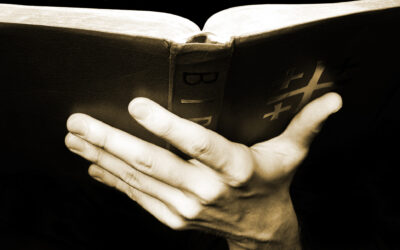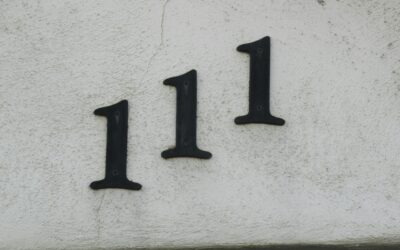It’s impossible to read the Bible without encountering the term Holy Spirit. In the New Testament, he is revealed as a comforter and a supernatural helper. But he was also active in the Old Testament right from creation where “the spirit of God was moving over the waters” to when he would come upon his prophets with power and might. The word spirit is mentioned over 500 times in the Bible, and more than half of that count is from the Hebrew Bible. It is from the Hebrew Bible that we understand more about the work of the spirit.
So, what’s the Hebrew word for spirit?
Ruach is the Hebrew word for spirit. When the spirit of God filled an individual in the Old Testament, they were empowered with exceptional abilities and skills that made it possible to bring God’s plan to fruition. The spirit also comes upon a person to empower them for service, but if they displeased God, the spirit would depart.
What is the Meaning of the Hebrew Word Ruach?
Commonly translated as “spirit,” ruach has a rich meaning in Hebrew. “Spirit” is an accurate translation of the term, but ruach or ruwach, pronounced as roo’-akh, means more than that. According to Strong’s Exhaustive Concordance, ruach means “wind, anger, mind, courage, strength, energy of life, emotions, and breath.”
Ruach is spelled Reysh Vav Chet. The pictograph of Reysh is a head and means a leader, first, master, highest, or top. Vav is a pictograph of a wooden hook or iron nails and means to secure two things, bond, fasten, or add. Finally, Chet is a pictograph of a fence and means to encircle, separate what is inside from outside, divide, boundary, and protect.
The first time the word ruach is mentioned in the Tanakh is in the context of the Spirit (ruach) of God:
“In the beginning, God created the heavens and the earth. Now the earth was formless and empty, darkness was over the surface of the deep, and the Spirit (ruach) of God was hovering over the waters” (Genesis 1:2).
Ruach, meaning holy breath, is seen in the valley of dry bones. Ezekiel had a prophetic vision of a valley full of dry bones. God ends up explaining that His breath (“spirit” or “ruach”) brings life to the dry bones.
Holy Spirit in the Old Testament
There are also numerous instances where the word spirit (ruach) is mentioned in the Old Testament, but often, it’s in combination with the name of God. For example, Ruach Elohim (Spirit of God) or Ruach YHWH (Spirit of Yahweh).
The Hebrew phrase for the Holy Spirit is Ruach HaKodesh. HaKodesh, spelled as Hey Qoof Dalet Sheen, is made of two words: Ha, which is “the,” and Kodesh, translated to mean holiness, sacredness, separateness, or apartness. The pictograph of Hey is a man with his hand raised or uplifted which means behold or look. Hey represents the light and divine breath. We see the word light during the creation process when God said “Let there be light” (Genesis 1:3).
So hey represents God’s power in the creation, which can also mean God’s spirit breathed forth creation. The numerical value of hey is five and relates to the five senses, emotions, mind, and oneness. The pictograph of hey also means the spirit of God dwelling in a believer or the ability of a believer to return to God through the transforming power of the spirit.
The picture of Qoof is the back of the head and means behind or the least. Dalet is the pictograph of a door and means entrance, a place for change or decision. The Hebrew pictograph of sheen is teeth and refers to pressing down, consuming, destroying, and devouring. The pictographic meaning of Ruach HaKodesh points to a leader (spirit of God, wind of God, or the breath of God) who will allow the least to be set apart and allowed to pass through a door where God will reveal Himself.
There are several instances in the Old Testament where God would come to rest on specific people to empower them to complete or achieve His plan. One instance where we see the spirit at work is when a prophecy in the Old Testament foretells about a future leader from the line of King David. This future leader would be filled with the spirit of God and be unlike any other ruler. The Lord’s Spirit would rest on Him to provide wisdom, strength, and knowledge (Isaiah 11:2).
What Was the Role of the Holy Spirit in the Old Testament?
People in the Old Testament received the Spirit to be empowered for service. David was anointed and filled with the spirit. In such cases, God’s spirit would rest on a specific person to help them perform some work or to carry out some responsibility in a way that will fulfill His plan on earth. Bezabel is an example of what happens when the spirit of God rests on a person.
After God rescued the Israelites from slavery in Egypt, He instructed Moses to build a holy tent where His presence would reside. Bezabel was the man God chose to build the Tabernacle. He was also one of the few people filled with the spirit.
Because Bezabel was “filled with the Spirit of God,” he had special ability, intelligence, knowledge, and talent to work in every kind of crafting. God enabled him to create artistic designs in gold, silver, and bronze. He could also cut and set stones and carve wood. Bezabel constructed the Ark of the Covenant and was also able to teach all the other artisans. Together, they completed the Tabernacle according to God’s specifications (Exodus 31- 39).
David was anointed and also filled with the spirit of God that made it possible for him to serve Saul, survive all hardships, and eventually become king (1 Samuel 16:13). However when he took Bathsheba as his wife, David sinned against the Lord and was worried that the spirit of God would depart from him. So David prays to God, “Do not take Your Holy Spirit from me (Psalm 51:11).
People in the Old Testament That Were Filled By the Spirit
Apart from David and Bezabel, several other individuals in the Old Testament were also empowered or filled with the Holy Spirit.
- Joshua (Numbers 27:18)
- Samson (Judges 14:6)
- Gideon (Judges 6:34)
- Joseph (Genesis 41:38)
- Prophet Daniel (Daniel 5:11)
- Saul (1 Samuel 10:10)
When a person was filled by the spirit (ruach) in the Old Testament, it was not related to salvation. Instead, it was to empower for service or to implement God’s will. Just because a person was filled with the Holy Spirit doesn’t mean it will remain forever. Often, sin causes the Spirit of God to depart (1 Samuel 16:14).
Is the Holy Spirit the Same in the Old and New Testament?
The Holy Spirit – the third person in the Trinity – was just as active in the Old Testament as in the New Testament. Ruach HaKodesh (holy spirit) in the Old Testament is a comforter, a guide, a teacher, or an advocate who goes before the judge on behalf of believers to plead their case (John 14:26).
The New Testament teaches the permanent indwelling of the Holy Spirit is in believers (1 Corinthians 3:16-17). On the other hand, the Spirit of God in the Old Testament dwells on specific people chosen by God to accomplish His plans.
Conclusion
Ruach teaches us that the spirit of God in the Old Testament was selective and temporary. When the Holy Spirit comes upon us we are filled with power to perform a specific task from God and empowered for service. Despite a few differences, the spirit of God has the same function in the Old and New Testaments: to transform the heart of a sinner.




